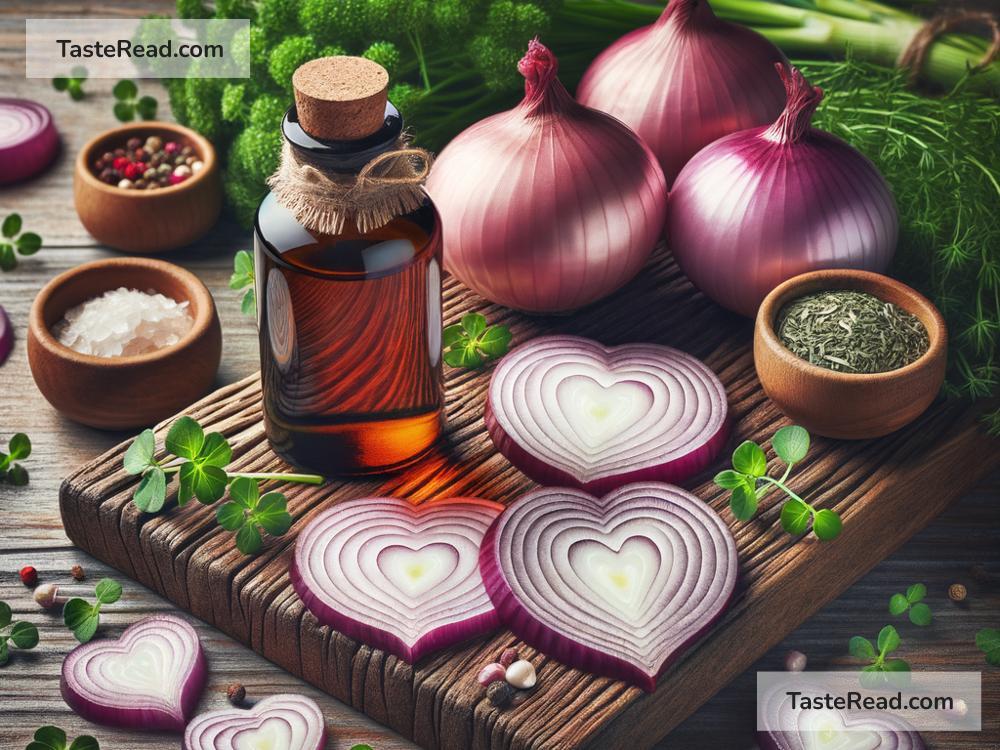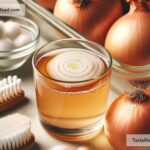Unlocking the Power of Onion Extracts: A Natural Path to Better Heart Health
When you think of onions, you probably picture these versatile vegetables making an appearance in your favorite dishes, adding flavor and depth to soups, salads, and stir-fries. But did you know that onions can also play a starring role in keeping your heart healthy? Onion extracts, packed with powerful compounds, are gaining attention for their potential benefits in maintaining cardiovascular health and managing cholesterol levels. Let’s dive into the science and learn how this humble vegetable could work wonders for your well-being.
Why Cardiovascular Health Matters
Your cardiovascular system includes your heart, blood vessels, and arteries. This system is essential for pumping blood, delivering oxygen, and keeping every part of your body functioning. Unfortunately, problems like high cholesterol, high blood pressure, and inflammation can put strain on your heart and lead to life-threatening conditions such as heart attacks, strokes, and coronary artery disease.
While lifestyle changes like exercise, a healthy diet, and stress management play key roles in keeping your heart healthy, researchers are increasingly exploring natural remedies to support cardiovascular health—and onion extracts are showing promise.
What Makes Onion Extracts Special?
Onions contain a treasure trove of nutrients and bioactive compounds that contribute to their medicinal properties. Among these, two stand out for heart health: quercetin and organosulfur compounds.
-
Quercetin: Quercetin is a flavonoid, a type of plant compound with antioxidant and anti-inflammatory properties. Antioxidants protect your cells from damage caused by free radicals—molecules that can speed up aging and contribute to various diseases, including those affecting the heart. Research suggests that quercetin can help lower blood pressure and reduce inflammation, creating a more favorable environment for your heart to thrive.
-
Organosulfur Compounds: These sulfur-containing compounds give onions their distinctive taste and smell, but they do much more than add flavor. Studies have found that organosulfur compounds can help reduce cholesterol levels and prevent the buildup of plaques in blood vessels, which are major contributors to heart disease.
How Onion Extracts Work for Cardiovascular Health
1. Lowering Cholesterol Levels
Cholesterol is a waxy substance found in your blood. While your body needs some cholesterol for essential functions, too much of it—especially low-density lipoprotein (LDL), also known as “bad cholesterol”—can lead to clogged arteries. Onion extracts have been shown to help lower LDL cholesterol levels while boosting high-density lipoprotein (HDL), or “good cholesterol.” This balance can reduce your risk of heart disease and improve the overall health of your blood vessels.
2. Reducing Blood Pressure
High blood pressure is often called the “silent killer” because it can damage your cardiovascular system over time without showing obvious symptoms. Studies have found that quercetin in onion extracts can help relax blood vessels and improve their elasticity, thereby lowering blood pressure. This makes onions a natural ally in your quest to maintain healthy blood pressure levels.
3. Preventing Inflammation
Inflammation is the body’s natural response to injury or infection, but chronic inflammation can harm your heart and accelerate the progression of cardiovascular disease. The antioxidants in onion extracts, especially quercetin, fight inflammation and promote a healthier environment for your heart and arteries.
4. Strengthening Blood Flow
Organosulfur compounds in onions support the production of nitric oxide, a molecule that helps improve blood flow. Better circulation is essential for delivering oxygen and nutrients to your organs, including your heart. Onion extracts ensure that your cardiovascular system functions smoothly and efficiently.
Adding Onion Extracts to Your Routine
If you want to enjoy the heart health benefits of onion extracts, here’s the good news: incorporating them into your life is easy! You can enjoy onions in their raw, cooked, or even powdered form in your meals. Alternatively, onion extracts are available as supplements in capsule or liquid form at many health stores. Always consult your doctor before starting any new supplement, especially if you have preexisting health conditions or take medications.
Eating a balanced diet that includes onions alongside other heart-healthy foods—such as garlic, leafy greens, nuts, and fish—is a great way to support your cardiovascular health naturally.
Are There Side Effects?
For most people, onion extracts are safe when consumed in moderation. However, some individuals may experience digestive discomfort, such as gas or bloating, if they eat onions in large quantities. If you’re prone to such issues, starting with a small amount and gradually increasing your intake may help.
In supplement form, onion extracts are typically well-tolerated, but allergic reactions are rare possibilities. Always read labels carefully and stick to the recommended dosage to minimize any risks.
A Healthy Heart, Naturally
Onions may be small and often overlooked, but they pack a powerful punch when it comes to promoting heart health and managing cholesterol. Thanks to their unique combination of antioxidants, anti-inflammatory compounds, and organosulfur compounds, onion extracts are making waves in the world of natural remedies.
Of course, no single food or supplement is a magic bullet for perfect cardiovascular health. The key to prevention lies in a holistic approach—regular exercise, stress reduction, a diet rich in whole foods, and quitting smoking are crucial steps toward a healthier heart. Adding onion extracts to the mix can complement these habits and give your heart the extra support it needs.
So, next time you chop an onion or sprinkle onion powder into your recipe, remember that you’re not just adding a burst of flavor—you’re taking a step toward a healthier, happier heart.


